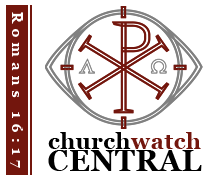 The Didache [did-uh-kē] purports to be “The Teaching of the Twelve Apostles” and dates anywhere between 50-120 AD. Many of the statements it has are an exact match to some biblical writings like the Gospel of Matthew. So why is it that the Didache isn’t in the Bible? For starters, in order for any writing to be revealed by God to his people for acceptance, several criteria must be met as follows:
The Didache [did-uh-kē] purports to be “The Teaching of the Twelve Apostles” and dates anywhere between 50-120 AD. Many of the statements it has are an exact match to some biblical writings like the Gospel of Matthew. So why is it that the Didache isn’t in the Bible? For starters, in order for any writing to be revealed by God to his people for acceptance, several criteria must be met as follows:
“1) Was the book written by a prophet [or apostle or follower] of God [who knew them]?; 2) Was the writer authenticated by miracles to confirm his message?
3) Does the book tell the truth about God, with no falsehood or contradiction?; 4) Does the book evince a divine capacity to transform lives?
5) Was the book accepted as God’s Word by the people to whom it was first delivered?”
A close look at the Didache reveals it doesn’t meet these criteria because:
♦ The author is unknown.
♦ In Didache 4:8, it is commanded to give something material and tangible as “a ransom for thy sins,” whereas the Bible clearly says repeatedly Jesus is the ransom for our sins (Romans 3:25; 1 John 2:2) and that we aren’t saved by works (Ephesians 2:8-9; Hebrews 10:6-10).
♦ Regarding baptism, Didache 7:6-7 demands that the baptizer and the person being baptized must fast 1-2 days before the baptism takes place. The book of Acts shows that as soon as a person believed, they were usually baptized immediately with no mention of fasting at least a day (e.g. Ethiopian eunuch (Acts 8), the 3,000 at Pentecost (Acts 2), Cornelius and his family and friends (Acts 10), etc.).
♦ Didache 8:1-2 labels people hypocrites for fasting on the 2nd and 5th days of the week, then claims that true believers must fast on the 4th and 6th (sabbath) days of the week. But in Acts 15: 28-29, the apostles said they would give the believers no other burdens than “ye abstain from meats offered to idols, and from blood, and from things strangled, and from fornication…” Paul even told the churches it was up to them to personally decide which days to observe as holy (Romans 14:4-6; Colossians 2:16-17).
♦ According to Didache 8:11, one must pray the Lord’s prayer, aka the “Our Father,” three times every day. Again, I refer you to the Acts 15, Romans 14, and Colossians 2 scriptures above to refute the Didache’s claims.
♦ Prophets who visited or were part of congregations, according to Didache 13, were to be considered chief priests and the congregations were commanded to give them a prescribed amount of their goods for compulsory firstfruit offerings. Although Paul acknowledged apostles were allowed to live off the substance of the congregations (1 Corinthians 9:4-11), in order to avoid any perceived hindrance to the spreading of the gospel, he and Barnabas chose not to use that right and relied on freewill offerings and discouraged forced giving in addition to encouraging ministers of the gospel to have a job for supporting themselves (1 Corinthians 9:12, 18; 2 Corinthians 9:7, 11:9; Philippians 4:16-19; 2 Thessalonians 3:8). Furthermore, no apostle or prophet in the New Testament demanded to be called chief priests.
The Didache, therefore, falls way short of reaching the level of God’s inspired word.
























I am surprised..
LikeLike
Hello Harry, I kind of have an issue with this blog post as I do believe it is from the original CE 50-70, as far as authorship the same can be said of the book of Hebrews, Baptism they had a catechism in place when this was written in order to train the new converts that they did not with Cornelius who knew the scripture as many did in the book of acts such as the Eunuch who the Spirit had revealed Himself to. The other things it was in contrast to the sacrificing to the idols and Judaism especially when the temple was destroyed in 90 they would be struggling with the idea of not sacrificing the first fruits.
Until I hear from literal biblical scholars not to use the Didache I will continue to use it.
LikeLike